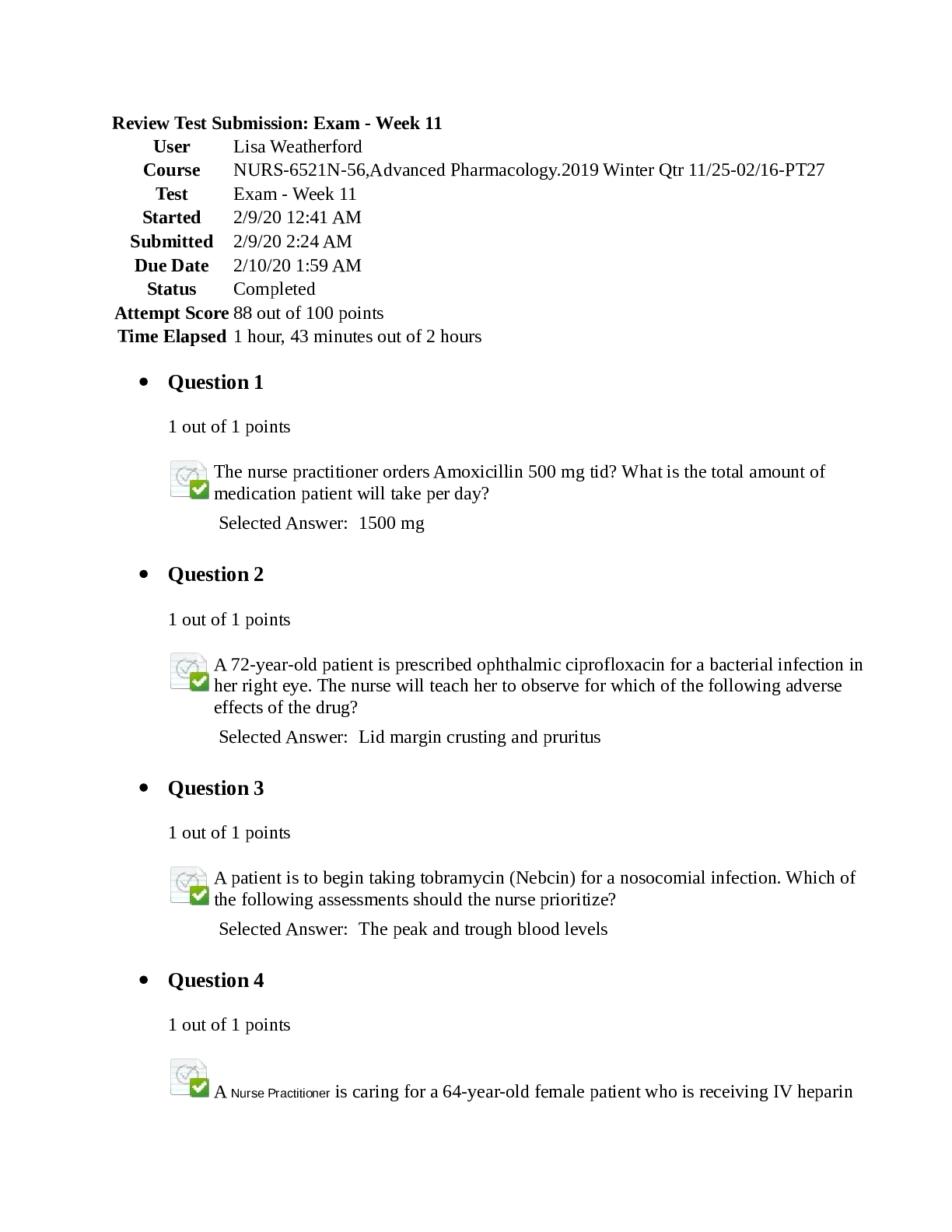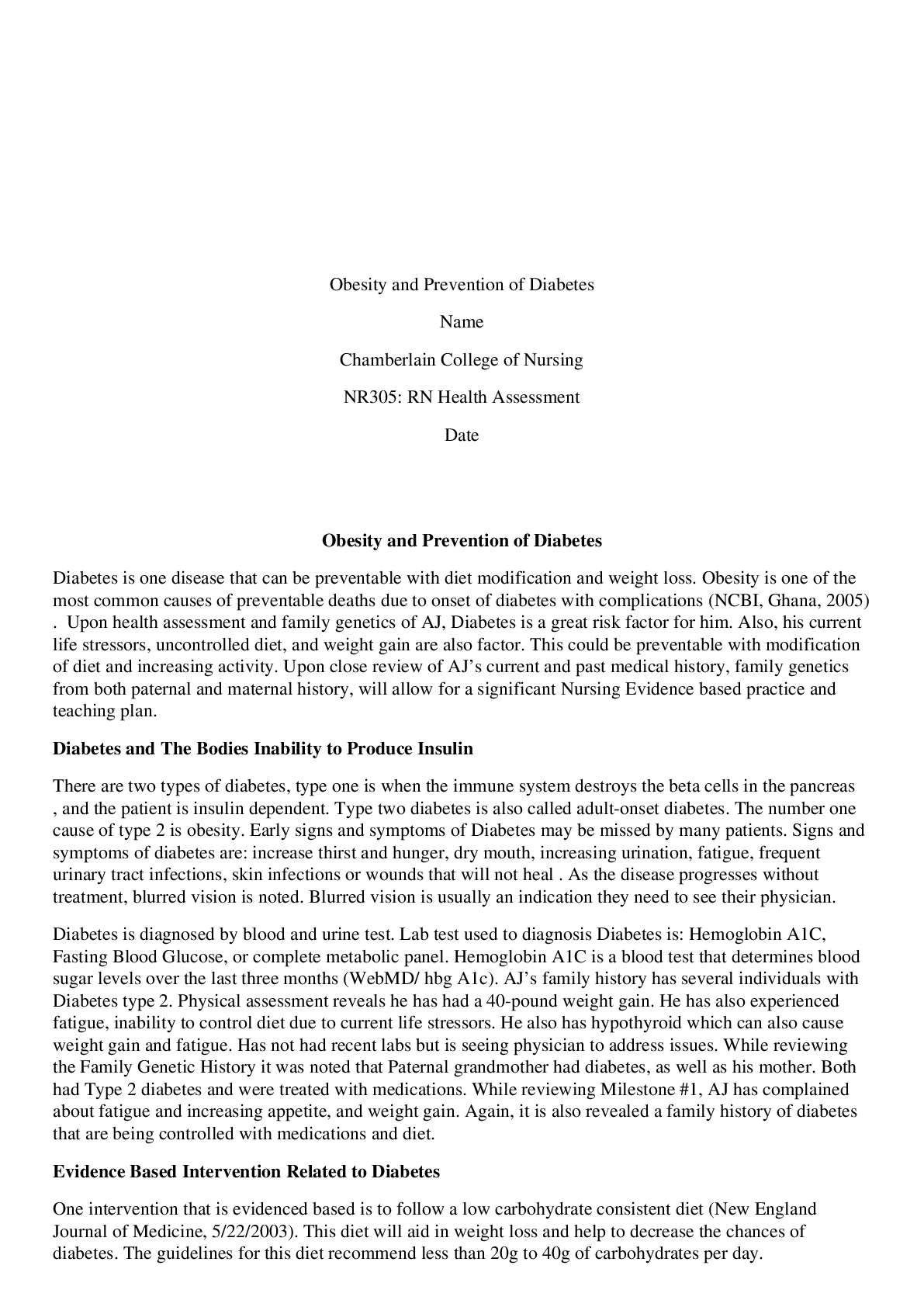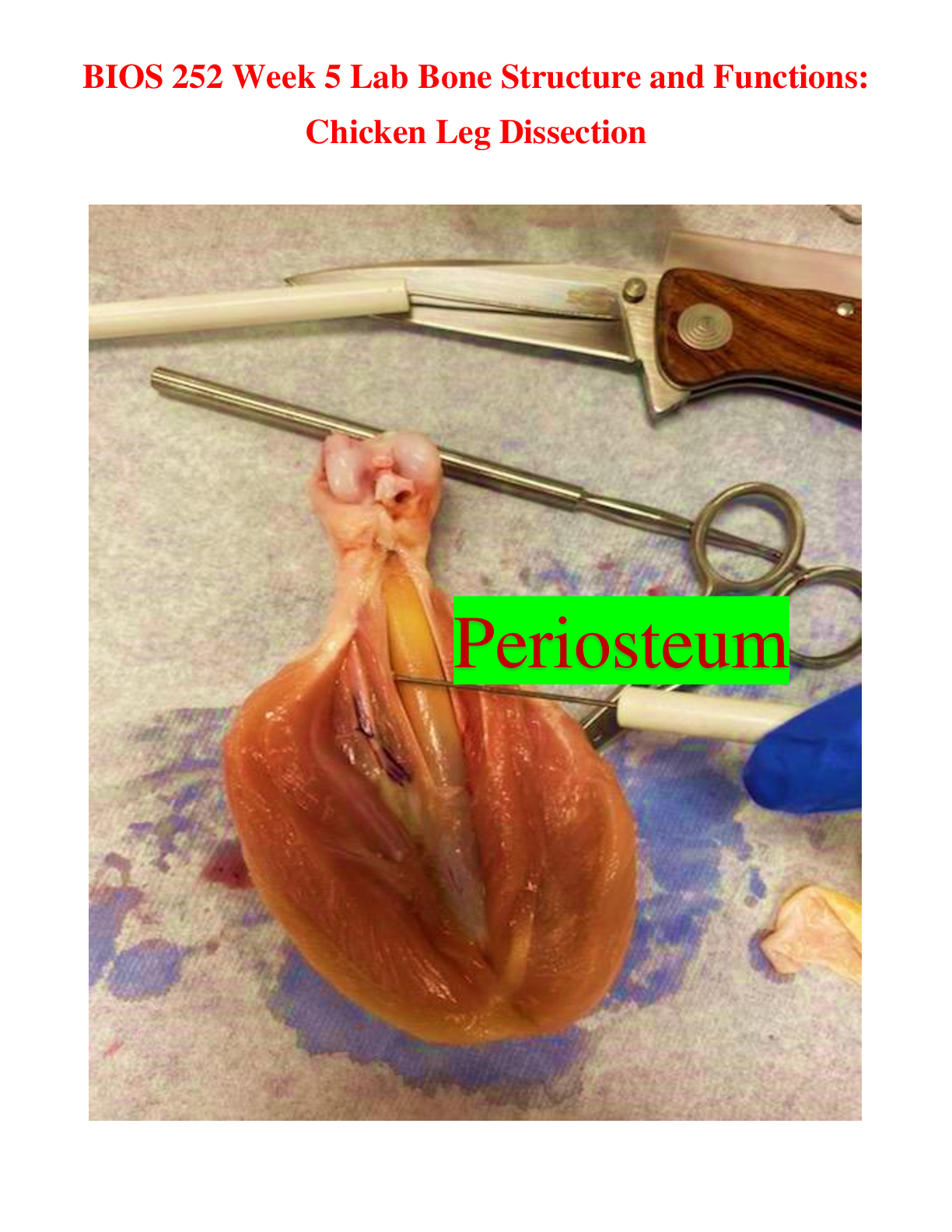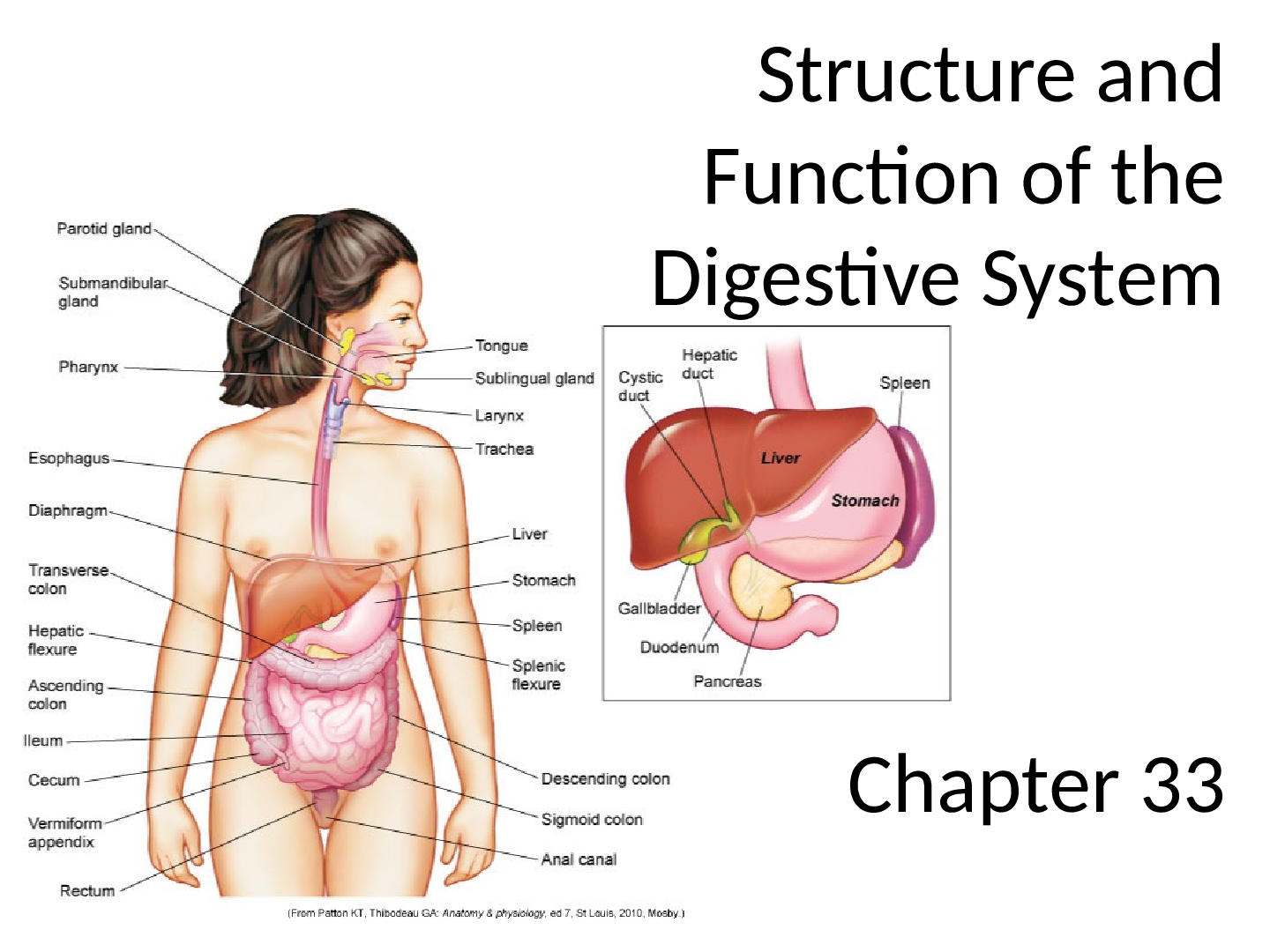*NURSING > STUDY GUIDE > MN551 Quiz 3 and 4 Structure and Function of the Cardiovascular System & Respiratory System Quiz. (All)
MN551 Quiz 3 and 4 Structure and Function of the Cardiovascular System & Respiratory System Quiz.
Document Content and Description Below
MN551 Quiz 3 and 4 Cardiovascular. 3 - structure and function of the cardiovascular system 4 - structure and function of the respiratory system 1.The n urse practitioner for a cardiology practice is r... esponsible for providing presurgical teaching for patients who are about to undergo a coronary artery bypass graft. Which of the following teaching points best conveys an aspect of the human circulatory system? “Your blood pressure varies widely between arteries and veins, and between pulmonary and systemic circulation.” “Only around one quarter of your blood is in your heart at any given time.” “Blood pressure and blood volume roughly mimic one another at any given location in the circulatory system.” “Left-sided and right-sided pumping action at each beat of the heart must equal each other to ensure adequate blood distribution.” https://science-forums.com/index.php?topic=28839.0 Which of the short term and long term compensatory mechanisms is least likely to decrease the symptoms of his heart failure? AV node pacemaking activity and vagal nerve suppression Reassignment of cardiac pacemaking activities and suppression of the vagal nerve are not noted compensatory actions related to heart failure. Increased preload and sympathetic stimulation, increased levels of epinephrine and norepinephrine, and activation of the renin-angiotensin-aldosterone system and secretion of brain natriuretic peptide (BNP) are all noted compensatory mechanisms. Question 2.2. A physical assessment of a 28-year-old female patient indicates that her blood pressure in her legs is lower than that in her arms and that her brachial pulse is weaker in her left arm than in her right. In addition, her femoral pulses are weak bilaterally. Which of the following possibilities would her care provider be most likely to suspect? (Points : 3) Pheochromocytoma Essential hypertension Coarctation of the aorta An adrenocortical disorde [Show More]
Last updated: 2 years ago
Preview 1 out of 17 pages
.png)
Buy this document to get the full access instantly
Instant Download Access after purchase
Buy NowInstant download
We Accept:

Reviews( 0 )
$13.00
Can't find what you want? Try our AI powered Search
Document information
Connected school, study & course
About the document
Uploaded On
Nov 23, 2020
Number of pages
17
Written in
Additional information
This document has been written for:
Uploaded
Nov 23, 2020
Downloads
0
Views
124














